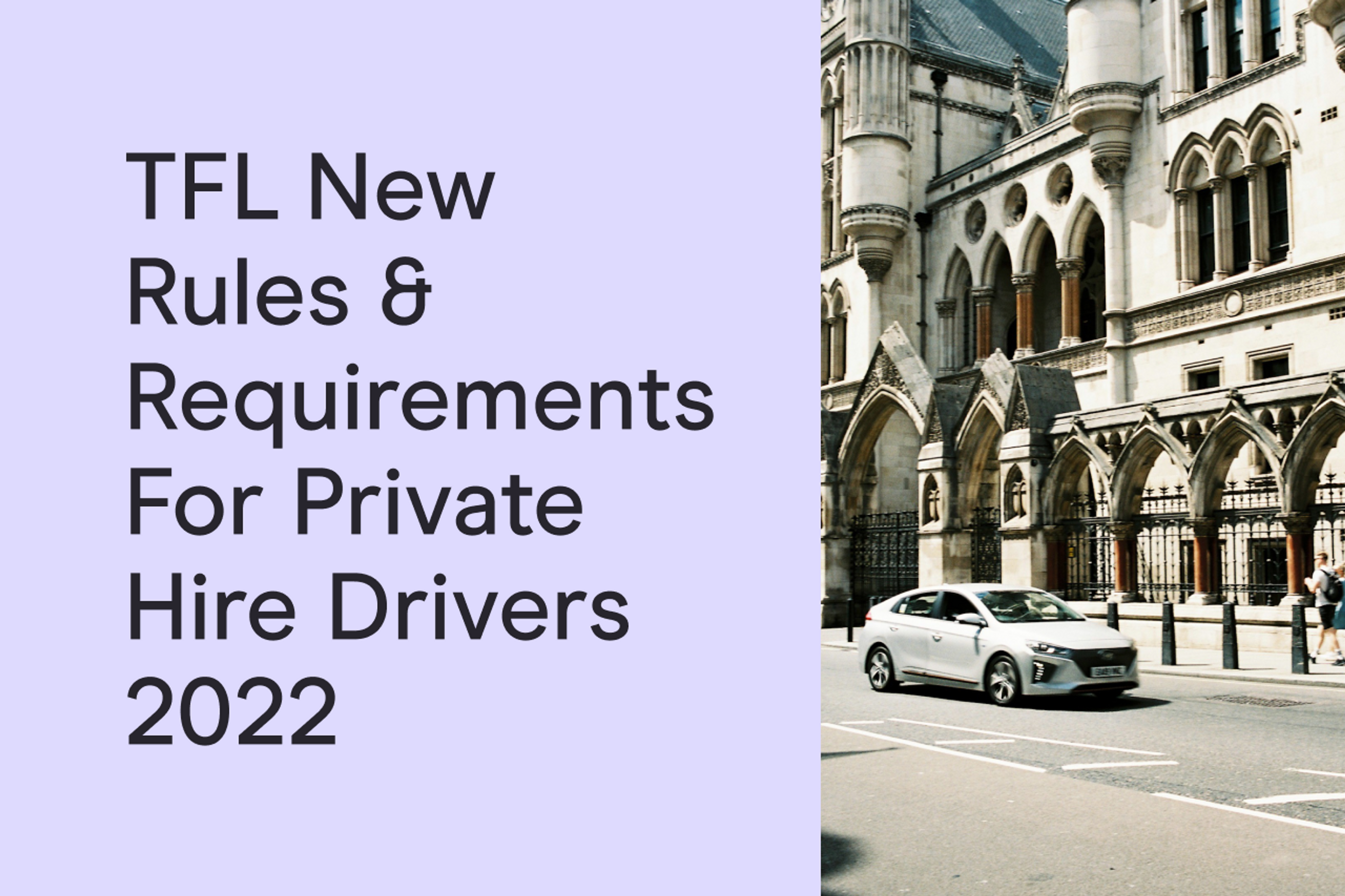
- Private hire insurance rules have changed
- Signs and advertising banned on and in most private hire vehicles
- English language requirement updated and still mandatory
- National insurance number mandatory for licensing and renewals
There are over 110,000 private hire drivers working in London. Uber alone has more than 45,000 on their platform. This vast army of cars and drivers is controlled by TFL – Transport For London. Their rules determine how, when, and where taxi drivers work, and drivers are expected to stay up to date on rule changes or additions. Failure to comply could lead to fines, suspension or worse, and saying you were unaware is no defence. To keep you safe and up to speed on these important rules, here are the biggest TFL updates for 2022:
What are new TFL rules on Private Hire insurance?
There is a slight tweak in the rules for insurance of private hire vehicles. Old rules said your vehicle must be covered for private hire during the entire period it was licensed for taxi use. This meant drivers who worked seasonally were forced to insure their car for private hire even when it was not being used as a taxi. The new rule has done away with this. Now, private hire insurance is required at the point of licensing and then it must be in force whenever the vehicle is being used as a taxi. Drivers who do not use their car for private hire all year round can now insure it for taxi work when they work as a taxi driver and change to standard motor cover when they don’t. Zego’s flexible 30 days insurance policies are the perfect fit to get the best from this rule change.
Are signs and advertising allowed on minicabs in London?
No. Unless the vehicle has special exemption from TFL, drivers cannot display signs or advertising on or in their taxi. This means any unauthorised ads you may have in the cabin must be taken down.
Does TFL still have an English Language Requirement (ELR) for private hire drivers?
Yes, but there has been a rule change. It is no longer possible to satisfy the ELR by providing written evidence of a qualification or by providing a certificate from one of TFL's appointed Secure English Language Test (SELT) providers. To satisfy the ELR, drivers must now pass two separate assessments. These are a speaking and listening assessment, and the Safety, Equality and Regulatory Understanding (SERU) assessment which is used to determine their reading and writing skills. Drivers only need satisfy the ELR once to work in London.
Is my national insurance number required for private hire in London?
Yes. The Department for Work & Pensions and HM Revenue & Customs are focussing on private hire in London to make sure drivers pay correct income tax and national insurance. To support this aim, TFL now requires all taxi drivers to register their NI number at first licensing and with all renewals.
What is the best Private Hire insurance for TFL?
London taxi drivers may save £hundreds every year on Private Hire insurance by switching to Zego. Buy third party or fully comprehensive cover for TFL – and get all in one policies that protect private hire, food delivery and personal vehicle use. Drive with any firm. 30 days or annual policies. Or choose Zego Sense, the Telematics policy that rewards good taxi drivers with lower prices – the safer you drive, the more you save.
Get a quick quote now — it only takes a minute.
Related Posts
How much does private hire insurance cost
New rule changes for TFL drivers
Telematic Private Hire Insurance